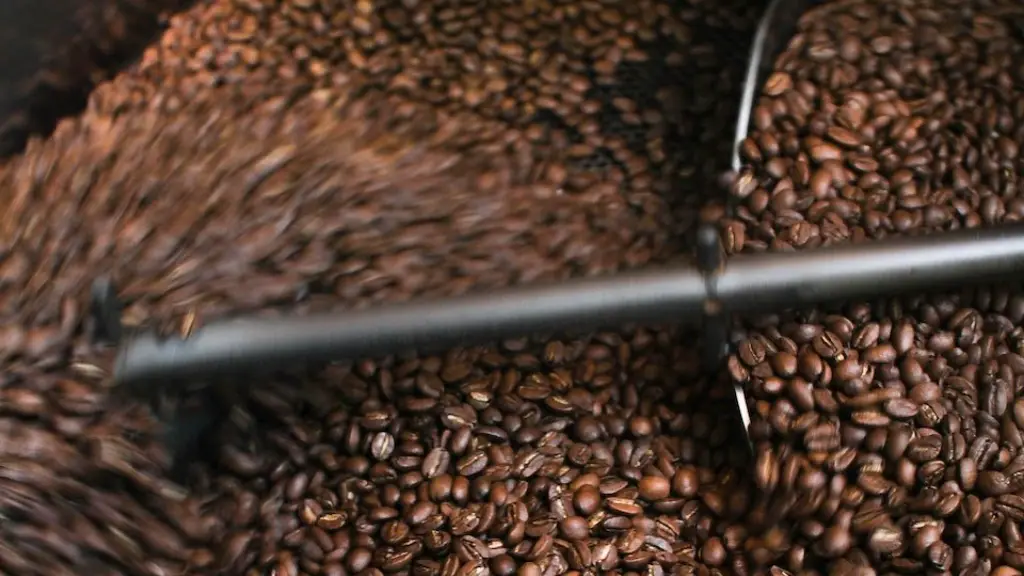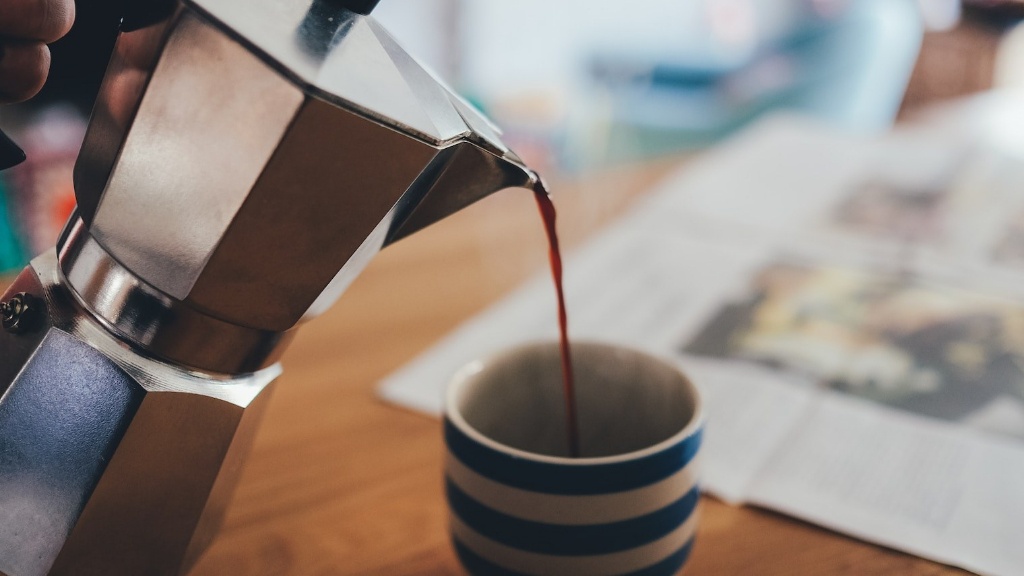The Impact of Caffeine on the Menstrual Cycle
Every woman has been told that she should avoid drinking coffee when she’s on her period. But is that really true? Is it bad to drink coffee while on your period, or is it safe? The answer may depend on a variety of factors.
Caffeine is known to be a stimulant, and it will likely interfere with a woman’s body’s natural hormonal balance. Therefore, it is important to know how caffeine affects the body and how it will interact with a woman’s menstrual cycle.
Caffeine has been proven to affect the body in several ways. It has the ability to increase alertness, energy, and heart rate. In addition, caffeine can increase the amount of cortisol in the blood, which is an important stress hormone that can significantly influence other hormones in the body.
Researchers have also studied the effects of caffeine consumption during a woman’s menstrual cycle. One study conducted by the American College of Obstetricians and Gynecologists found that consuming too much caffeine during the follicular phase of the cycle could increase a woman’s risk of having irregular cycles. The research also showed that caffeine consumption during the luteal phase could decrease progesterone levels and increase premenstrual syndrome (PMS) symptoms.
The amount of caffeine a woman should consume while on her period will depend on the individual. It is important to pay attention to any possible symptoms that may be related to caffeine consumption. If you experience any negative symptoms, consider cutting back on the amount of caffeine consumed or avoiding it completely.
Experts also suggest taking into account an individual’s health and lifestyle habits. Everyone’s body is unique and different, so it’s important to consider how caffeine will interact with the body’s natural processes.
The Link Between Caffeine and Dehydration
It is important to keep in mind that caffeine can have a diuretic effect, which means it aids in increasing urine output and can lead to dehydration. This can be especially problematic during a woman’s period because many women become dehydrated due to increased fluid loss. Drinking plenty of water is recommended in addition to limiting the intake of caffeine to avoid dehydration.
Experts also suggest avoiding coffee during the luteal phase, as it can lead to a decrease of progesterone levels. When progesterone levels are low, estrogen levels have a tendency to become dominant, leading to stronger PMS symptoms. Caffeinated drinks should also be avoided near bedtime as it can interfere with a woman’s sleeping schedule.
Overall, it is important to be mindful and aware of the effects of caffeine on the body and its possible interactions with the menstrual cycle. The amount of caffeine to consume can vary depending on the body’s make up, so it is important to evaluate individual lifestyle habits and be mindful of any symptoms that could be related to caffeine consumption.
The Impact of Timing on Caffeine Consumption
Not only should women consider the amount of caffeine they are consuming, but they should also be mindful of when they’re consuming it in relation to the menstrual cycle. It may be beneficial to stop caffeine consumption prior to the start of the cycle until the luteal phase has concluded.
Some experts recommend avoiding caffeine during the menstrual phase as it can affect the body’s hormonal balance. Others suggest taking into account any possible PMS symptoms that caffeine may be exacerbating and limiting consumption.
Most experts agree that caffeine consumption should be monitored and limited during the menstrual cycle, as it can have severe physical and psychological effects on a woman’s body. For example, caffeine consumption can increase anxiety levels, irritability, and restlessness. All of which can be particularly difficult to cope with during a woman’s menstrual cycle.
Caffeine can also increase a woman’s risk of developing headaches, cramps, and fatigue, all of which can be extremely debilitating for a woman during her period. In order to avoid or minimize these side effects, it is important to limit caffeine consumption or abstain completely when on your period.
The Benefits of Caffeine Consumption During Menstruation
On the other hand, caffeine consumption can have several benefits, even while on your period. Caffeine can help improve mental alertness and focus, which can be especially helpful when dealing with menstrual-related fatigue or depression. It can also be useful in helping to reduce headaches, cramps, and other physical discomforts that are often associated with a woman’s period.
In addition, some women find that drinking coffee during their period helps them feel more energetic and energised. This can be particularly helpful for women who have difficulty getting through the day due to menstrual-related fatigue.
Regardless, it is important to keep in mind that the amount of caffeine consumed should be monitored and limited. Caffeine consumption is best avoided during the luteal phase due to its potential effects on progesterone levels and the exacerbation of PMS symptoms.
Therefore, it is important to consider an individual’s health and lifestyle habits, and the effects of caffeine on the body. Women should pay attention to any symptoms that could be related to caffeine consumption, and if any negative symptoms are experienced, it is important to consider cutting back on the amount of caffeine consumed or avoiding it completely.
Moderate Consumption During Menstruation
Some experts suggest that moderate caffeine consumption is acceptable while on a menstrual cycle. This means limiting the intake to one cup of coffee or one cup of tea per day. It is important to note, however, that personal tolerance levels may vary and that some women may be more sensitive to caffeine than others.
Women who are pregnant or trying to conceive should avoid any type of caffeine consumption. The effects of caffeine on unborn babies can be significant. Pregnant women should also be mindful of the amount of alcohol, nicotine, and other substances that are consumed.
In conclusion, it is best to be mindful and aware of the effects that caffeine can have on a woman’s body during her menstrual cycle. Moderation is key when consuming caffeine and it may be beneficial to limit caffeine consumption or abstain completely in order to reduce the risk of any negative side effects. Ultimately, the best advice is to pay attention to any possible symptoms that may be related to caffeine consumption, and consider cutting back or avoiding it completely in order to stay healthy and safe.
Reducing Caffeine Consumption During Menstruation
If a woman decides to reduce her caffeine consumption, there are several ways she can do so. Many women find that replacing caffeinated beverages with decaffeinated versions is more manageable.
Additionally, some women find that herbal teas provide a healthier alternative to caffeinated drinks. Herbal teas such as chamomile and ginger can help with menstrual cramps and reduce bloating. These teas can also help relax the body and may provide additional benefits such as improved sleep and mood.
Lastly, women can opt for low caffeine beverages such as green tea, which contains significantly less caffeine than regular tea and coffee. This can be a great way to get a mild energizing effect without consuming excessive amounts of caffeine.
The Psychological Impact of Caffeine on a Woman’s Body
Many experts have studied the possible effects of caffeine on mental health in women. It is known that caffeine can increase the levels of cortisol in the blood, which is an important stress hormone. When cortisol levels are elevated, it can have a significant impact on a woman’s emotions and behaviour.
In addition, caffeine can increase feelings of anxiety, restlessness, and irritability in some women. These feelings can be particularly difficult to cope with during a woman’s menstrual cycle, as many women suffer from hormonal disruptions. Therefore, it is important to consider the psychological effects of caffeine consumption when deciding whether or not to drink coffee while on your period.
One study conducted by the Journal of Clinical Endocrinology and Metabolism found that women who consumed more than two cups of coffee per day were significantly more likely to experience depression. Therefore, it is important to limit caffeine consumption and pay attention to any mental health related symptoms that could be related to caffeine consumption.
Lifestyle Changes To Consider During Menstruation
In addition to limiting caffeine consumption during menstruation, women should also consider making some lifestyle changes. Getting enough rest is important for all women, but especially during a woman’s menstrual cycle.
Women should also make sure to eat healthy during this time in order to keep their energy levels up and their hormones in balance. Eating a healthy diet with plenty of fruits, vegetables, and whole grains can help reduce PMS symptoms and menstrual cramps.
Regular exercise is also important for helping regulate hormones and boosting mental and physical wellbeing during the menstrual cycle. Low impact activities such as yoga and tai chi can be particularly helpful in relieving stress and anxiety.
Finally, women should make sure to drink plenty of water and avoid alcohol during menstruation. Drinking water will help prevent dehydration and can help reduce PMS symptoms. Alcohol can interfere with the body’s hormones and can exacerbate PMS symptoms.





